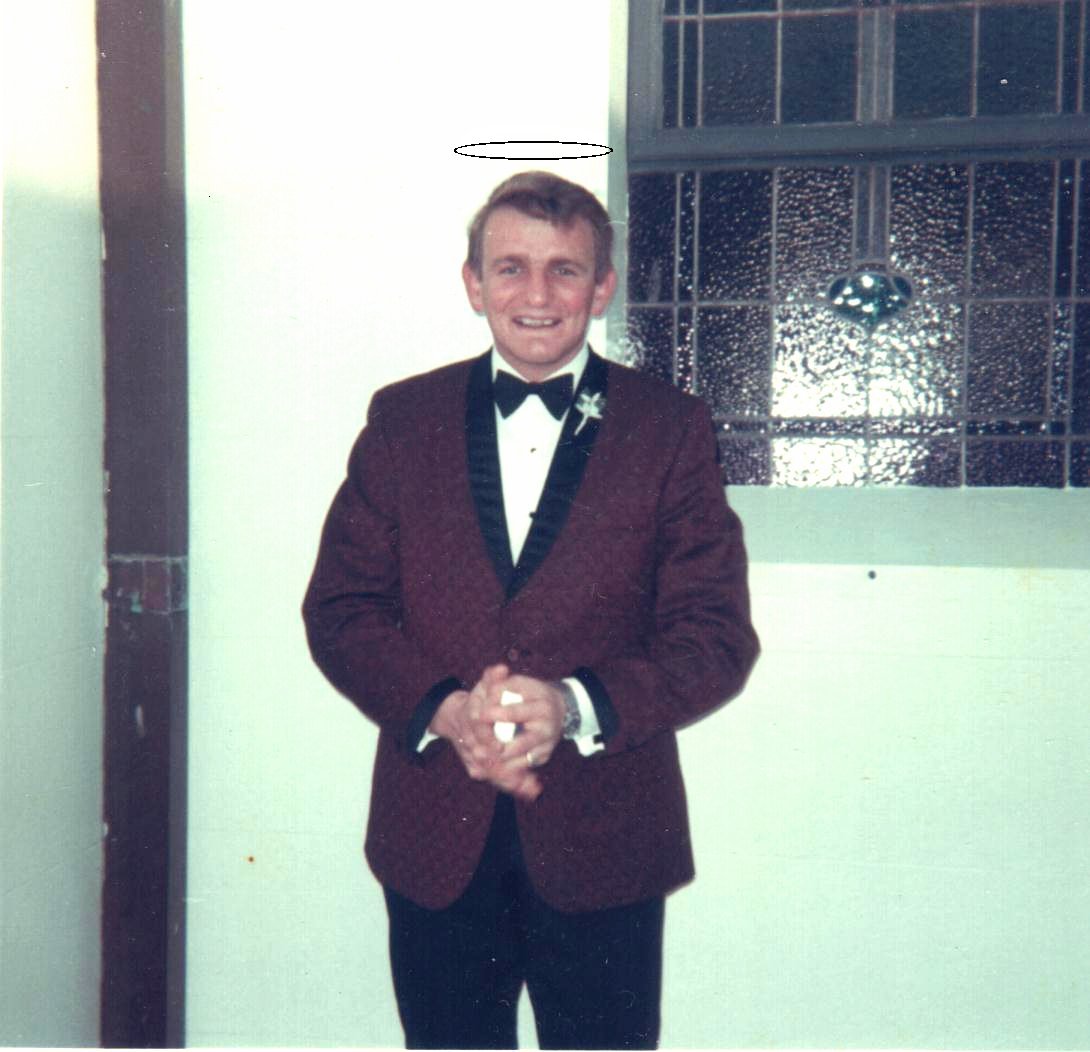|
|
||
|
|
Radschool Newsletter |
Vol 6 Page 4 |
|
|
||
|
Computers and Stuff
Sam Houliston. |
||
|
|
||
|
Spyware.
For the most part we think of our internet connection as a means by which we can see what’s out there, but sometimes it can work the other way around. For example a few months ago in Singapore the ISP that provides permanent cable connections was caught out scanning rather a lot of its customers machines.
There is another means whereby information on our machines can be sent off to goodness knows where without our knowledge, this is when software we have installed for our own purposes, in addition to whatever it normally does, detects when there is an internet connection available and uses this to send information from our machine to some place else. Software that does this is sometimes called “spyware” and some people are up in arms about it.
http://www.radiate.com is the web site of a major supplier of tools that help so-called “spyware” to be written, and not surprisingly they claim it’s all above board.
http://grc.com/optout.htm is a web site of Steve Gibson, who sees things in a completely different light.
Steve Gibson is the author of a piece of software called “OptOut” which will scan your machine for “spyware”, at present only a freeware version is available, but later on this year he is releasing a commercial version. Is he a crusader or someone who’s spotted an opportunity or a bit of both? My guess is that this is a subject he genuinely feels strongly about.
Generally, in a technical sense, spyware is installed with permission , because there is reference to it in the terms and conditions you have to agree to for the software installation to proceed. When was the last time you carefully read and understood these terms and conditions? Quoting from Steve’s site:
“The
news media has carried many stories about Real Networks who were
caught 'red handed' secretly profiling their users' listening
habits, Aureate/Radiate and Conducent Technologies whose
advertising, monitoring, and p
When confronted with their actions, such companies invariably say ‘read the fine print, what we're doing is spelled out there and the user agreed.’ That's odd, if the users understood and agreed, I wonder why those users are so surprised and upset when someone tells them — in plain language — exactly what's going on?”
A slightly comforting slant on all of this is that there doesn’t seem to be any evidence of personal as opposed to demographic information being collected by these mechanisms, at least not yet.
Makes you think, doesn’t it?
|
||
|
|
||
|
MP3.
The US company, NAPSTER, which allows its “members” to swap music files via the net has been in the news lately. Using their technology, music files are converted into MP3 audio files, which are easily sent flying here and there free of charge. Obviously this has got the record companies off-side, and there is now one mother of a legal battle to decide the issue. But, What is MP3?
Good question! Some years ago, a group of computer professionals got together to develop methods of compressing video for computer use. Calling themselves the Motion Picture Experts Group (MPEG), they set to work on shrinking down digital audio and video files at high quality. As part of their research, they developed an experimental audio compressor which they called MPEG-1 Layer III, which could shrink audio files to more than a tenth of their size, with minimal effect on sound quality. Distributing it freely on the Internet for the purpose of testing and development, they had no idea what they were unleashing.
An uncompressed audio file is, in Internet terms, huge. To download an hour of music in raw CD form would take most home users at least 24 hours, a couple of hours per song. A compressed MP3 would take the same home user about ten minutes to download. Net nerds soon worked out how to utilise MP3 compression to 'rip' their CDs and, with the advent of CD burners, how to convert them back into audio CDs - and trading in the resultant MP3s began.
|
||
|
|
||
|
Last issue we showed you a photo of 4 little angels, one of which was Pete DeJonge. Reader wrote in saying the Pete DeJonge he knew couldn’t be described as an angel. Well, we don’t know about that, so we’ve included another photo. You be the judge!!
|
||
|
A big brown bear walks into a bar in Burnie and sits down. He bangs on the bar with his paw and demands a beer. The bartender approaches and says, "We don't serve beer to big brown bears in bars in Burnie."
The bear, becoming angry, demands again that he be served a beer. The bartender tells him again, more forcefully, "We don't serve beer to belligerent big brown bears in bars in Burnie."
The bear, very angry now, says, "If you don't serve me a beer, I'm going to eat that lady sitting at the end of the bar." The bartender says, “Sorry, we don't serve beer to belligerent, bully big brown bears in bars in Burnie."
The bear goes to the end of the bar, and as promised, eats the woman. He comes back to his seat and again demands a beer. The bartender states, "Sorry, we don't serve beer to belligerent, bully big brown bears in bars in Burnie who are on drugs."
The bear says, "I'm not on drugs."
The bartender says, "You are now. That was a barbitchyouate." |
||
|
|
||
|
Big Fred.
As mentioned, thanks to Phil Baldock, (right) we were able to make contact with Fred Holtmann. Fred is now retired and lives alone in a little town of between 3-400 people, about an hour and a half north of Adelaide. He is a full TPI with back and leg problems, thanks to his stint in Vietnam in 68-69.
He ended up at Edinburgh, and spent the last 15 years of his time in the RAAF as a WOD. He was on his way to the Officer’s Mess when DVA granted him TPI status, which put a stop to the Commission, and sent him into Civvy Street. That was in February, 1999. He now spends one or two days a month as an instructor with the ATC cadets in Adelaide, and says he loves it as it keeps him in touch with the service
We also found out about the bed. Somehow, over the years, it had been placed on his clothing card, and it followed him around from base to base like a little dog. When he got out, and was doing his discharge clearances, no-one wanted the bed. L Group didn’t want it back and said it was a Barracks item, and Barracks said it wasn’t their concern, and to take it back to L Group. Last Fred saw of the bed it was dragged out into a laneway, and was finally broken up into bits. .
When we contacted him he knew we had been looking for him as Phil Baldock had given him copies of our last two newsletters. He was very pleased and a little surprised to see that he was remembered so well by so many people. Fred has given us his email address, and says he would be delighted to hear from anyone. If you want to have a yarn to Fred, send your initial contact to him via us (radschool@yahoo.com) and we’ll forward it on. As a lot of Brats know only too well, he spent quite a few years as DI to Appy-land at Laverton, got to know quite a few of the blokes pretty well and consequently has quite a few memories from back then. We’ve convinced him to share a few of them with us, and he’s promised to be a regular contributor to our newsletter. From a couple of incidents we heard on the phone, (the still for making booze hidden in the walls for one) we think his memories will be very entertaining.
We asked Fred if he had any photos from way back, but he says he lost them all shortly after his divorce. If you’ve got any photos with Fred in them—please send them in. |
||
|
|
||
|
|
||
|
|
||
|
|
||

 rofiling software sneaks into our
machines without our knowledge or permission, Comet Cursor which
secretly tracks our web browsing, GoHip who hijacks our web browser
and alters our eMail signatures . . . and many other hopeful and
exploitive newcomers on the horizon.
rofiling software sneaks into our
machines without our knowledge or permission, Comet Cursor which
secretly tracks our web browsing, GoHip who hijacks our web browser
and alters our eMail signatures . . . and many other hopeful and
exploitive newcomers on the horizon. 
